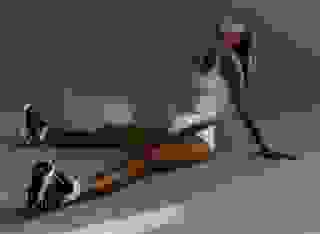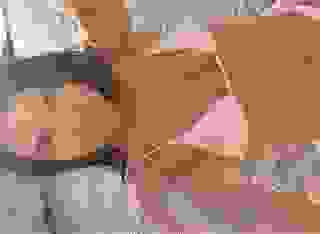- Erotic Horror
- Lanyon and Henry Ch. 03
Note: You can change font size, font face, and turn on dark mode by clicking the "A" icon tab in the Story Info Box.
You can temporarily switch back to a Classic Literotica® experience during our ongoing public Beta testing. Please consider leaving feedback on issues you experience or suggest improvements.
Click hereAnd here is Chapter Three. Thanks for sticking with me!
If you haven't read the first two chapters, this probably won't make a lot of sense. Here's the first chapter, and here's the second. Please let me know your thoughts!
Trigger warnings: PTSD, History lessons, completely fabricated science and cluttered, Victorian-style prose.
*
Lanyon and Henry, Chapter Three: Angels and Demons
Copyright 2023 by B. Watson
*
Excerpts from the journal of Henry Jekyll
29 July 1893
Last night, the dreams returned:
Faces—laughing. Screaming. Spittle-flecked lips stretched over yellow teeth.
I float down the sidewalk on wings of liquor and glee,
My arms flail at the silent buildings, and I take a bow. Shriek my delight at their dark windows.
The echoes laugh back at me.
So very FREE.
She comes to me on her knees. Creamy breasts shake in spasms. Legs wrapped around me,
pulling
me
closer.
Flesh under my hands. Squeezing. Twisting.
Flesh
under
my
teeth.
Grey eyes wide with fear and excitement...
*
When I awake, the images are still playing in my mind. For a moment, I do not know where I am.
I recognize my bed. My wife, asleep beside me. I scrabble for my journal. Flipping through pages of neat, even notes, I find his familiar scrawl:
Dearest Henry,
Lanyon is mine. I will take her when I want her.
Ever yours,
Edward Hyde
It's not a dream. Not a nightmare.
He is back
It has been seven years since I last encountered Edward Hyde. I thought he was gone forever, conquered by Lanyon and I. Exorcised by the inexorable power of love and science.
I've since learned that love and science, those forces in which I placed so much faith, are bound to fail, to fly apart in the stark light of day. For here he is, returned to the world of the living. Writing in my journal. Attacking my wife.
2 August 1893
I dream:
Men in red coats swarm the field. Afghans in fawn-colored robes meet them.
Dirt and blood and screaming. The thud of rifle butts hitting bodies. A maelstrom of dust and gunpowder haze and sunlight glinting from rifles.
The Polo Player gallantly gallops across the fallow field, his stick swooping in a perfect parabola. It rushes to meet the ball—
*
The Polo Player returned last night. That, at least, is familiar: while he might occasionally take a sabbatical to ride through some other man's nightmares, he always comes back to me, like a bad penny or a blood red moon, to remind me of my greatest aspiration. My greatest failure.
I arrived in Afghanistan in 1878, fresh from medical school, with the formalin stench of the dissection theater still clinging to my coat. Wrapped in a blanket of youthful idealism, I had turned my back on the seedy politics of the hospital and the blustering prestige of the university, choosing instead to dedicate my art and skill to nothing less than the advancement of mankind.
To my starry young eyes, the outbreak of hostilities in Afghanistan was a shining opportunity for a grand crusade. What better way, I imagined, to carry the torch of civilization than by seeing to the needs of her Majesty's soldiers as they fought the depredations and perversion of the Emir of Afghanistan? Instead of an angel's flaming sword, I would wield my scalpels and saws, anaesthetics and cauterizing irons. I would show the infidel the carrot of civilization, even as Britannia's armies dispensed a stick to punish their barbarism.
What dreams I had! What hubris!
My first battle was Charasiab. I prepared my field hospital with the zeal of a true believer. The morning of the battle, our rudimentary clinic was stocked with gleaming rows of white rolled bandages and polished instruments. The stretchers were assembled and waiting to be deployed, the cauterizing irons cleaned and ready to be heated. When time permitted, I watched the battle in the distance, anticipating my part in the great drama.
At first, it was an orderly affair: General Roberts' Kabul Field Force was arranged in precise ranks. Boots polished, rifles gleaming, bayonets set.
Within an hour, the field was bedlam.
Roberts' forces attacked the Afghans from both flanks. A peculiar rattling gunfire, which I later learned was Gatling guns, decimated the enemy's ranks. But soon the Afghans moved too close for the guns, and infantrymen from both sides engaged in close quarters, trading blows and kicks, bayonet strikes and saber slashes. Soldiers in English red coats clubbed their opponents with rifles, like prehistoric troglodytes squabbling over some scrap of meat. Everywhere I looked, there was stabbing, gouging, rolling in the dirt. Gleaming uniforms reduced to dust-covered rags and men reduced to monsters.
Then the Polo Player came.
Watching him wade into the melee on horseback, my breath caught. Red coat aflame in the sunlight. Gold buttons gleaming. Man and beast fused in matchless, fluid form. Astride his steed, pith helmet in place, he appeared almost a vision, the platonic ideal of the English soldier.
He raised his saber like a polo mallet, swooping it down in a perfect off-side swing. And the ball flew down the field.
I stood for a moment, stock still. Then I vomited.
*
According to official reports, casualties were light at Charasiab, but in the surgery the difference between light and heavy casualties was academic. My boots slid across the blood-soaked floor as I rushed from table to table, extracting bullets, suturing wounds, clamping vessels, sawing bones. Later, after Maiwand and Kandahar, I realized just how easy was my entry into this new world. But that day, I imagined myself born again in a wave of blood and feces, tattered flesh and shredded bandages.
My soul recoiled at this bloody new world, but something within me thrived there. A cool, pragmatic force took charge—efficient, skilled, and lacking in any measure of empathy.
We say "I shall never do this," or "I couldn't do that." But then one finds oneself sawing through the femur of a screaming man, or choosing one soldier to live and another to die. And you realize that you can do things you never imagined possible, make choices that you hoped you would never have to make.
And then it becomes easier.
I'd had glimpses of this side of myself before. In medical school, I was routinely required to demonstrate my nascent surgical skills upon cadavers. Usually, this was easy—most of our subjects were of advanced age or had lived hard lives, and it was easy to ignore the divine hand that had crafted these bodies. One day, however, I removed the shroud on my table to reveal the body of a comely young lass, rather than the world-worn and shriveled former horseman whose cadaver I had faced the day before.
I had been proud of the surgical detachment that I had shown in the operating theater, the jaded eye that ignored bodies and saw only wounds and diseases, organs and bones. But now it was gone.
My breath caught.
Archibald Bell, my anatomy professor was standing at my side. "Young women, aged approximately 20 years. Death by strangulation," he stated, as if he was reciting the day's specials at the tavern across the street.
My eyes traveled the length and breadth of her body. Her young breasts, firm and pale. Her smooth flesh. Her colorless lips.
"Well, get to it, lad," Bell ordered.
My blade hovered above her sternum. I took a breath and closed my eyes. I felt something shift. When I opened them, I was no longer gazing at some paragon of God's divine artistry. It was a body, nothing more. I made the first incision and began my autopsy.
In Afghanistan, that detachment seized hold of me for ever-increasing periods, a process about which I felt a certain ambivalence. The rank and file, however, didn't share my concern. Where I saw myself becoming something less than a man, they grew convinced that I was an angel of mercy—a position that was reinforced during Maiwand, when I worked for three days without respite, burying my doubts and confusion in the bloody, sticky work of the surgery as the cold, efficient butcher inside me took charge.
But could an angel of mercy close his ears to the screams of the wounded as he sawed through their bones or held cauterizing irons to their oozing flesh? Could an angel ignore the entreaties that he give just one more dose of morphine? Could an angel walk blithely past the limbs stacked outside the hospital? The corpses piled like cordwood?
How many times did I save a young man, only to deliver him to a future that was brutally diminished? No, if I was an angel, I was an angel of death. If I was a doctor, I was an obstetrician, attending the birth of new lives that would be measured in shortened horizons and dashed dreams.
If I was a man, I was half a man, no longer capable of human emotions.
9 August 1893
Hyde is hiding.
It has been 11 days since last he haunted my dreams. Has he gone away, or is he just biding his time?
Last night, Collins visited me in my sleep.
He was an infantryman who lost his legs at the siege of the Sherpur Cantonment. He begged me for death; when I refused, he tried to remove the stitches I had sewn into his stumps. Three times, I thwarted him, until I was forced to tie his arms to his bed to forestall further attempts at sabotage. Exhausted, he finally gave in, allowing his body to begin the laborious process of healing as he quietly sobbed for his mother.
Two days later, he appeared to have regained his senses. While somewhat apathetic toward his circumstances, he seemed lucid, and was even willing to discuss his future after his return to Britain. Convinced that he had resigned himself to his convalescence, I untied his arms, letting him regain the use of his hands. That afternoon, I found him in his hospital bed, his skin gray. His arms, opened by the scalpel that had fallen to the floor after he used it.
Exhausted and numb, I closed my mind to the horror and cleaned the scalpel.
The religion of my youth tells me that Collins was a suicide, forever denied entry to the gates of heaven. What punishment must then accrue to me, the man who forced that decision upon him? Was I an angel for Collins?
14 August 1893
Hyde has left no further missives in my journal. I am thankful for the silence, but also suspicious. I imagine him lying in wait, anticipating my next move. I feel his eyes upon me.
Lanyon continues to distance herself from me. I can only imagine the horror she faces, the confusion and hopelessness as she is torn between her dedication to our marriage and her fear of Hyde's assaults upon her body. How betrayed she must feel! How terrorized by the fiend in my flesh who relentlessly torments her.
She watches me every night, always ensuring that I go to bed before her. Is she trying to protect herself? Does she hope that, with her husband asleep, she will be safe from Hyde?
17 August 1893
I dream:
The boy is young. Thin. Clad in dirty rags.
I try to turn away, but I can't.
He is crying.
Screaming.
I cry, too.
He stretches his arms across a man's body, shielding it. Embracing it.
Blood seeps from the man's mouth. He is dying. Maybe he is dead.
Still the boy protects him. Crying as if his world had come to an end. I whisper to him to get up. To run. To save himself. I yell, scream, wave my hands.
He doesn't hear me.
The Polo Player arrives on his horse. Gleaming. Beautiful.
As he gallops by the boy, he leans down with an elegant swoop of his sword, flying in an arc like an especially graceful off-side polo swing. And the ball flies down the field.
The Polo Player canters away. Good chukker, governor.
*
I have begun reviewing my laboratory journals from Cambridge and Bedford, hoping to retrace the steps I took to create the fiend. And, perhaps, to find some clue to halting his return.
In their pages, I am again confronted by the man I became in Afghanistan. On the battlefield, I saw acts of unimaginable heroism and unforgivable brutality committed by combatants on both sides. I learned that my childish faith in the wisdom of the church and the myth of English superiority were little more than comforting lies. All of us—English, Indian, Afghan, Russian—were hosts to both angels and demons; the potential for good and evil was tangled within all of us.
I became a doctor to bring order to the world, but in Afghanistan, my virtuous dreams drifted apart like a puff of dust in a hurricane, churned into nothingness by the relentless grind of blood and bone. I was no herald of British civilization, no beacon of virtue. I was a tired, filthy seamstress, sewing together grim futures from tattered flesh.
And what of my dreams? What of the future I had hoped to sew together for myself?
I had always imagined that I would one day be a husband and father, a practicing doctor and a pillar of the community. But that future now seemed both too small and too vast for the thing that I had become. In the surgery, Jekyll the idealist, the man who loved humanity and saw his brothers as vessels of God, gave way to Jekyll the surgeon, whose unsympathetic eyes saw his patients as little more than tattered bags of meat that needed to be sliced and sewn into new configurations.
When I returned to England, I was Tiresias, cut off from the common thread of mankind by the horrors I had witnessed and committed. I could never rejoin the blind mass of humanity, never again fit into the path I had once laid for myself. It was time to abandon my old dreams and seek new ones.
If order and justice were to prevail, I realized, the very nature of mankind would need to change. We would need to untangle our angels and demons and tame each of them. I resolved to build a door—a sequestration—between these two sides of every man. A Jacob's Ladder that would allow man strength he needed to fight his way to heaven and the virtue necessary to face God eye-to-eye and demand satisfaction.
My theology was questionable, but my goal was clear: God or evolution had taken mankind to this point. I wanted to take it further, to give humanity the power to control its destiny. And If I had to conquer God to do it, let the battle commence.
Out of that simple idea, Edward Hyde was born.
20 August 1893
Hyde is stirring. I feel him, just below the surface, staring out of my eyes and measuring my world.
I feel him waiting to be born again.
In the meantime, I continue to scour my notes in search of an answer to the mystery of his resurgence—and, perhaps, a clue to how to defeat him.
When I returned to England after the war, I poured myself into my new quest with the same fervor that I had once brought to the classroom and the surgery. The first step, I determined, was to split the psyche, to sever the bonds linking the angel and the demon, so that either could be called forth at will. To this end, I dosed my subjects with mercury and cocaine, elements that would induce delirium and a sort of controlled madness. It was devastating for those men, but by fracturing the personality, I hoped, I would be able to rearrange the remaining shards in configurations of my choosing.
Having effected the necessary psychic fracture, my next step was to force the body to evolve accordingly, rebuilding itself to fit the needs of its new hosts. To this end, I utilized the body's natural tendency to adapt to new stimuli. A body in distress will seek a way to protect itself, so I determined that I would inflict pain, to force the body to align itself with its stronger, more aggressive nature. Conversely, to bring forth the more passive, gentle side of the psyche, I would induce comfort, and so convince the body that it no longer needed to be prepared for battle.
Reading over my notes, I cringe at the crudeness of my first efforts. Cocaine and mercury. Strychnine to induce pain, laudanum to bring comfort. Testing quantities and dosages. Murdering scores of laboratory rats before coming to the conclusion that whatever angels and demons determine the behavior of rodents, they are inscrutable to the minds of men. Experimenting on volunteers—including many destitute veterans of the war—before discovering that, even among humans, the balance between angel and demon might not always be equal.
Some men, in fact, seem to be born without an angel at all.
I do not fault Cambridge University for its decision to quietly expel me. In my frenzied exploration of the frontiers of man's psyche, I acceded far too much to the demands of my own demons and inflicted permanent harm on many of my test subjects. Some, I fear, will never again see the outside of a prison or asylum.
When I left Cambridge, I was adrift. No longer a doctor, no longer a lecturer, no longer employed, I had become a casualty of my own ambition. When Colonel Lanyon offered me a position at Bedford College, I jumped at the opportunity. I might not heal the world or transform man's nature, I thought, but in the classroom, I could do some small good. I could be useful.
1 September 1893
I dream, and the eyes I see through are both mine and yet not me.
I awaken to the night, and the city calls to me.
I feel its hunger. Its anger. Its passion.
I smell its need, bursting like an overripe fruit. Sticky sweet, aching to be consumed.
My sweet sparrow is the tastiest morsel—and it has been far too long since I have been fed.
She accompanies me through shadowed streets and darkened rooms where the sweet perfume of opium fights with the stench of unwashed bodies.
Her eyes are wide. Fearful. And also... hungry?
I don't own her yet. Not completely.
In a shadowy room, candlelight dances on the walls and her eyes flash anger at me. She pushes her way out. I follow. She is yelling. I grab her. She stiffens, then her lips meet mine and she melts.
Her resistance is crumbling. Soon she will be mine.
*
My eyes open and I enter the world thrashing. It's my bed, and Lanyon is asleep beside me.
My heart is pounding.
Hyde is back, and he is staking his claim.
*
Lanyon has taken to spending long hours in her conservatory on the third floor, ensconced among her plants and potions. I am reminded of the events of eight years ago; this time, however, it is Lanyon who is avoiding me.
Even so, we continue to occupy the same bedchamber. After finding the bites and bruises on her body, I determined that I needed to separate myself from her, in order to protect her from the fiend that resides within me. I attempted to move into one of the guest rooms, only to be met with furious anger. Facing the potential end of our union—and dodging the Wedgewood crockery that she hurled at my head—I acceded to her demands to remain in our bedchamber. But I am confounded: why is she determined to occupy the same bed as me? Is she lonely? Guilty? Afraid to let me out of her sight after the sun sets?
*
At Bedford those many years ago, Lanyon was a balm to my injured soul. In her, I had the novel experience of conversing with my intellectual equal, and many were the nights we stayed up talking long past any reasonable hour. Like me, she dreamt of extending the limits of human potential, but her ambitions lay in transforming the body's ability to heal itself. She imagined herself a modern day Prometheus, giving mankind the power of the gods, making it the master of its own evolution.








